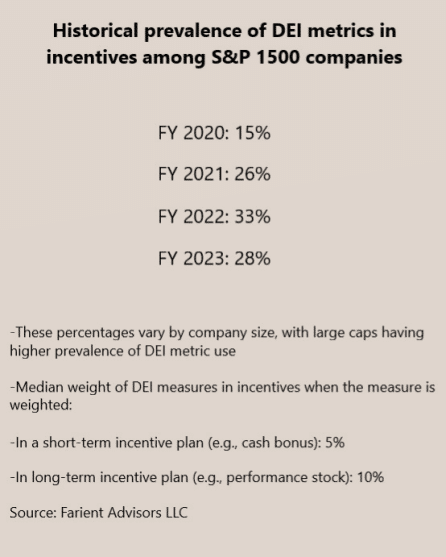
A lot of company America responded swiftly in Could 2020 when George Floyd was killed by a Minneapolis police officer, sparking widespread nationwide outrage and a reexamination of racism in American life. Along with talking out in regards to the homicide, many employers launched broad methods to extend workforce range by way of efforts to rent, promote and higher practice various workers.
Many Fortune 500 firms—together with Greatest Purchase, Starbucks, Chipotle, Goal, Johnson & Johnson and others—additionally boosted their give attention to accountability amongst senior leaders by linking government pay to DEI metrics, such because the retention price of various workers and the inclusivity price of coaching supplied.
Nevertheless, new analysis exhibits that some organizations have backed off these efforts within the yr because the U.S. Supreme Courtroom struck down affirmative motion insurance policies at schools and universities. The ruling prompted conservative activists to file dozens of lawsuits and EEOC complaints towards employers objecting to their affirmative motion insurance policies for hiring, coaching and selling workers.

Now, analysis from Farient Advisors signifies that the share of U.S. firms tying a portion of government compensation and incentives equivalent to money bonuses and inventory awards to DEI metrics declined in fiscal yr 2023-24 for the primary time since Floyd’s demise. Farient Advisors reviewed regulatory filings from 1,200 firms on the S&P 1500 going again to fiscal yr 2020, its newest knowledge obtainable.
In line with the filings, as an illustration, Uber eliminated DEI from the Strategic & Operational Priorities itemizing underneath its Annual Money Bonus Plan and changed it with a metric associated to sustaining firm tradition. In the meantime, 3M reexamined the way it units CEO compensation, eradicating a reference to growing range amongst its administration, as an alternative citing improved investments in various communities and various suppliers, based on Farient Advisors’ analysis.
Brian Bueno, ESG observe chief at Farient Advisors, sat down with Human Useful resource Government to debate this shift, how some firms at the moment are defining range for government compensation functions and what the change means for HR leaders and their organizations.
